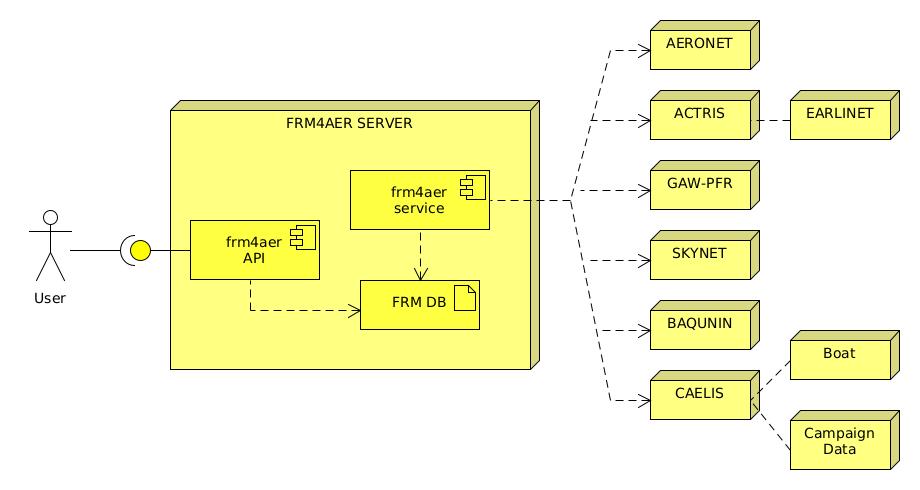01 April 2025
07 March 2025
The Fiducial Reference Measurements for Copernicus Aerosol Product Calibration and Validation (FRM4AER) project provides high-quality ground-based aerosol reference data to support the calibration and validation of satellite aerosol products operated by EUMETSAT as part of the Copernicus program.
The project focuses on ensuring the accuracy and reliability of aerosol retrievals by integrating scientific expertise, established measurement networks, and advanced data processing techniques. It supports the calibration and validation of current and future EUMETSAT aerosol missions, including those using instruments such as OLCI and SLSTR onboard Sentinel-3, as well as emerging missions like CO2M-MAP.
FRM4AER covers key activities, including the development of ground-based aerosol retrieval algorithms, aerosol profiling, uncertainty assessment, integration of campaign data, and the management of the aerosol FRM database. By maintaining traceability to international standards and ensuring continuous monitoring, the project contributes to improving satellite-derived aerosol products for climate research, air quality monitoring, and numerical weather prediction.
Objectives
FRM4AER's main goal is to provide fiducial reference measurements (FRMs) to support the calibration and validation of Copernicus aerosol products. To achieve this, it focuses on five key objectives:
Objective 1: Ground-Based Aerosol Retrievals
Develop and validate aerosol retrieval algorithms to improve the accuracy of total atmospheric column measurements used in satellite calibration and validation.
- Aligns with aerosol product and cloud detection requirements.
- Evaluates alternative retrieval algorithms using simulations and real data.
- Reduces uncertainties in aerosol retrievals through improved validation techniques.
Objective 2: Ground-Based Aerosol Profiling
Provide reference aerosol measurements from ground-based networks to support satellite-based aerosol profiling.
- Utilizes data from established networks like AERONET and ACTRIS.
- Selects the most relevant observation sites based on retrieval studies.
- Documents validation datasets for continuous monitoring.
Objective 3: Assessment of Measurement Uncertainties
Evaluate and quantify uncertainties in aerosol retrievals to improve data quality for satellite validation.
- Assesses uncertainties in retrieval algorithms and aerosol profiling methods.
- Defines quality control measures for fiducial reference datasets.
- Develops continuous monitoring techniques for real-time uncertainty assessment.
Objective 4: Integration of Campaign data
Organize and utilize measurement campaigns to validate and refine aerosol retrieval algorithms.
- Compiles a database of relevant aerosol measurement campaigns.
- Uses campaign data to improve satellite retrieval methods.
- Ensures standardized data collection for validation purposes.
Objective 5: Aerosol FRM Database Management
Establish and maintain the aerosol FRM database within the EUMETSAT environment to ensure long-term data accessibility and usability.
- Creates a centralized database for aerosol reference measurements.
- Supports the evolution of the database and ensures traceability.
- Provides ongoing maintenance for calibration, validation, and monitoring.
Overview
Accurate aerosol measurements are essential for understanding atmospheric composition, air quality, and climate change. Satellites provide large-scale aerosol observations, but their data must be validated against high-quality ground-based measurements to ensure accuracy and reliability.
The Fiducial Reference Measurements for Copernicus Aerosol Product Calibration and Validation (FRM4AER) project addresses this need by providing traceable, high-precision aerosol reference data for the validation of EUMETSAT-operated Copernicus satellite products. By integrating established ground-based networks, advanced retrieval algorithms, and rigorous uncertainty assessments, FRM4AER ensures that aerosol retrievals from instruments like OLCI and SLSTR on Sentinel-3 meet the highest scientific standards.
Through dedicated measurement campaigns, continuous database management, and methodological improvements, FRM4AER strengthens the Copernicus program’s ability to deliver accurate aerosol products for climate research, air quality monitoring, and operational forecasting.



